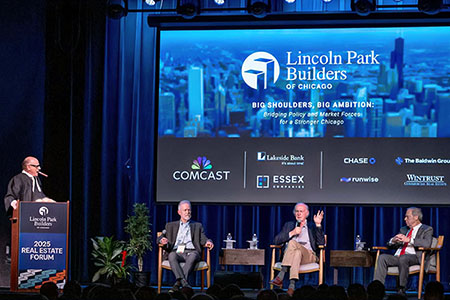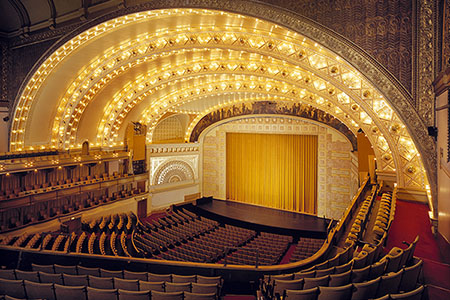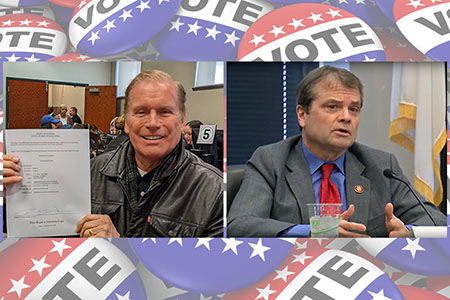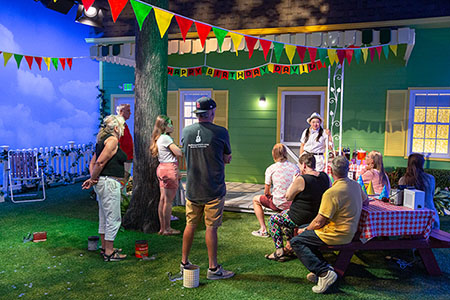
Despite higher mortgage rates and President Trump’s generally negative impact on the nation’s housing market, there are a few rays of sunlight filtering through for Chicago’s young first-time home buyers.
Feb. 5, 2017 – The nation’s hottest housing markets have one determining factor in common – employment opportunities. Cities with jobs in growing fields like technology are drawing residents in droves. Chicago currently is identified as the nation’s #1 housing market, soon to be transformed by technology, according to a recent survey by Modis, an IT-staffing provider. The other top tech job cities are Houston, Boston, Denver, and Philadelphia. Fifty-one percent of those surveyed ranked Chicago as the top tech hot spot of the future. The Windy City is likely to attract younger professionals who have worked in technology for five years or less, the Modis survey reported. The United States labor market got off to a strong start in January when employers added 227,000 jobs amid a burst of confidence following President Trump’s election. The retail, construction, and financial services sectors posted the biggest job gains.
The ValueInsured Housing Confidence Index reported that seven of ten Americans surveyed are “cautiously optimistic” about the 2017 housing market, and 62 percent of non-home-owning Millennials believe the market will turn in their favor this year.
Forty-four percent of non-home-owning Millennials are confident they can afford a down payment, and 41 percent are expecting it to be easier to buy a home in 2017. A Freddie Mac survey shows 40 percent of non-home-owning Millennials are making saving for a down payment a priority. However, the percentage of first-time home buyers who plan to purchase a home during the 2017 spring real estate season has declined ten percent since October 2016 due to concerns of higher mortgage rates. Rising mortgage rates loom like a black cloud on the horizon and that could put a damper on demand for both new and existing homes and condominiums in 2017, economists say. Mortgage rates relax after December spike The average rate on benchmark 30-year fixed mortgages spiked to 4.3 percent on December 22, 2016, following a Federal Reserve Board rate hike. Rates eased to an average of 4.09 percent on January 19 but increased to 4.19 percent on February 2, reported Freddie Mac’s Primary Mortgage Market Survey. A year ago at this time, the 30-year fixed loans averaged 3.72 percent.
However, 30-year rates are forecast to rise to 4.5 percent or higher this year, predicted Jonathan Smoke, chief economist for National Association of REALTORS. Unfortunately, a plan to reduce the fees home buyers pay on affordable Federal Housing Administration insured loans was abandoned immediately after President Trump took office. The U.S. Department of Housing and Urban Development had planned on cutting its loan fee to 0.60 percent from 0.85 percent. The fee goes into a fund to pay for future FHA mortgage defaults. The fee reduction would have saved an estimated $900 each year for two million borrowers paying down FHA loans, according to HUD. Borrowers with a typical 30-year $185,000 FHA mortgage would have pocketed an annual savings of $500. Despite a dip in Chicago home and condo sales in December, both transactions and median prices finished in positive territory in 2016, reported Illinois REALTORS. Chicago saw a seven percent year-over-year home sales decrease in December 2016 with 1,932 sales, down from 2,077 in December 2015. Total 2016 home and condo sales totaled 28,033 units, a 1.9 percent increase compared with 27,513 units in 2015. The median price of a home in Chicago in December 2016 was $260,000, up 8.3 percent compared to December 2015 when it was $240,000. The 2016 median price reached $272,000, up 4.2 percent from $261,000 in 2015, reported Midwest Real Estate Data LLC. The median is a typical market price where half the homes sold for more and half sold for less. |














